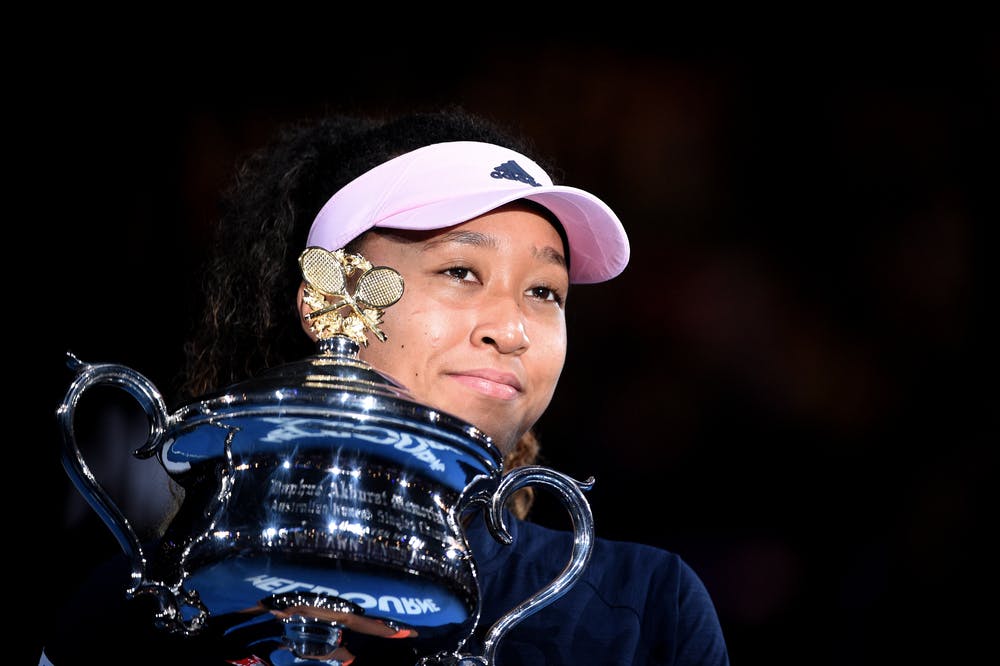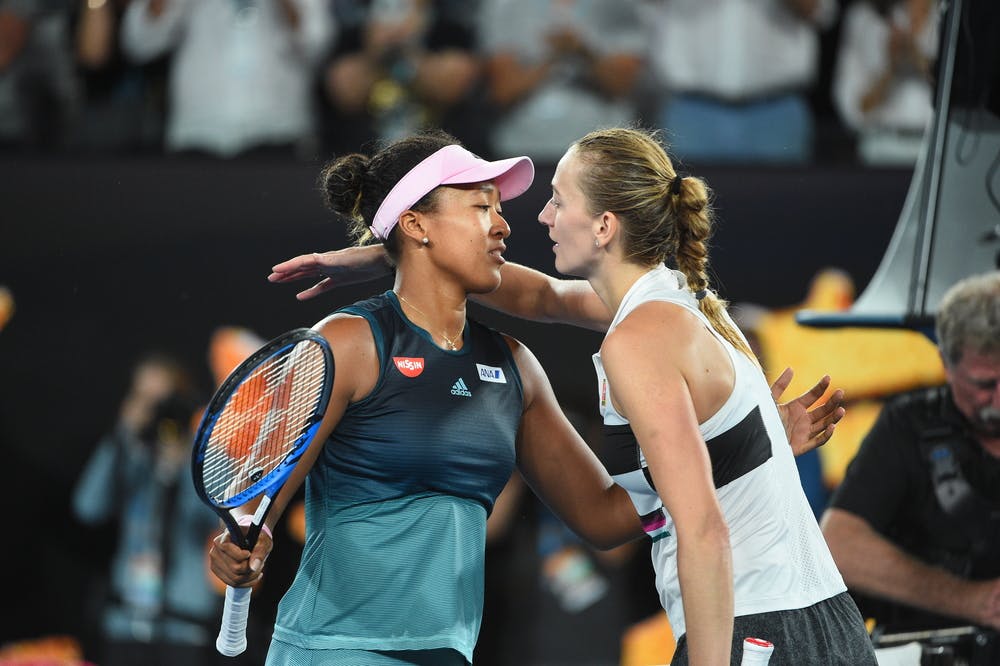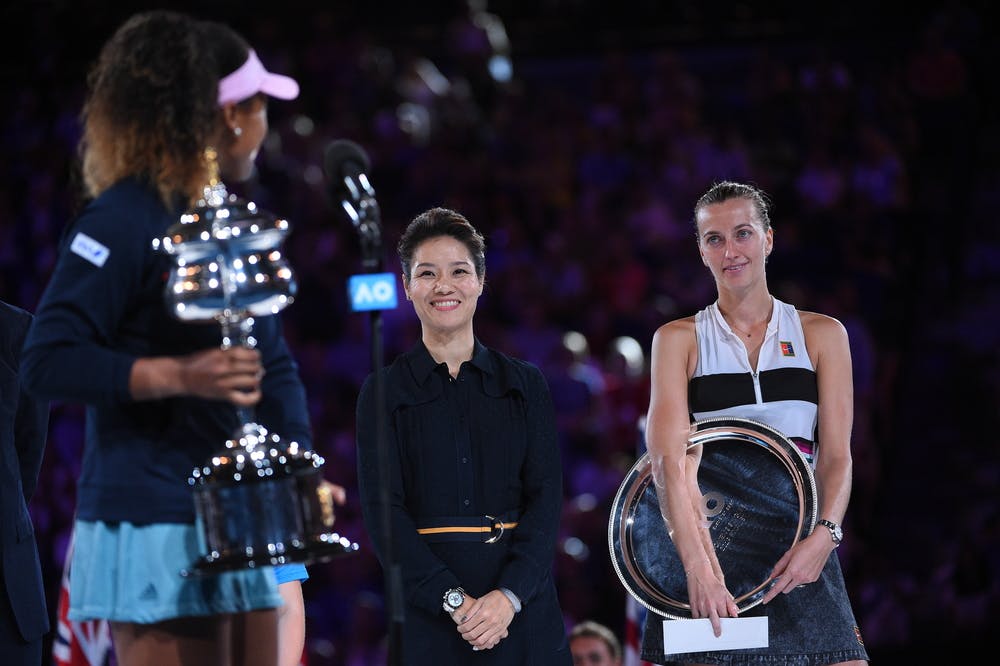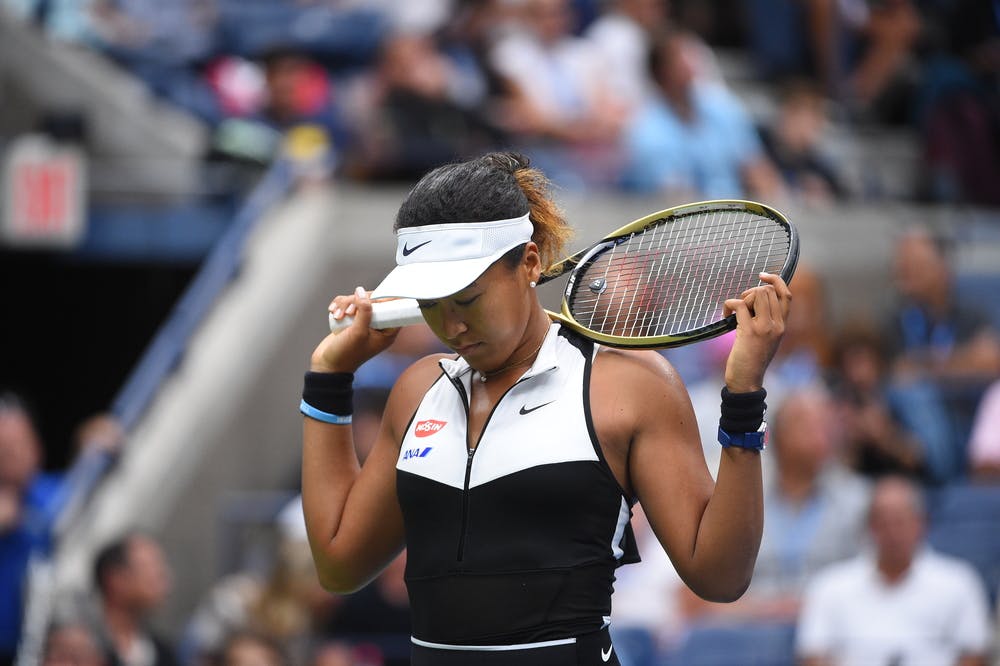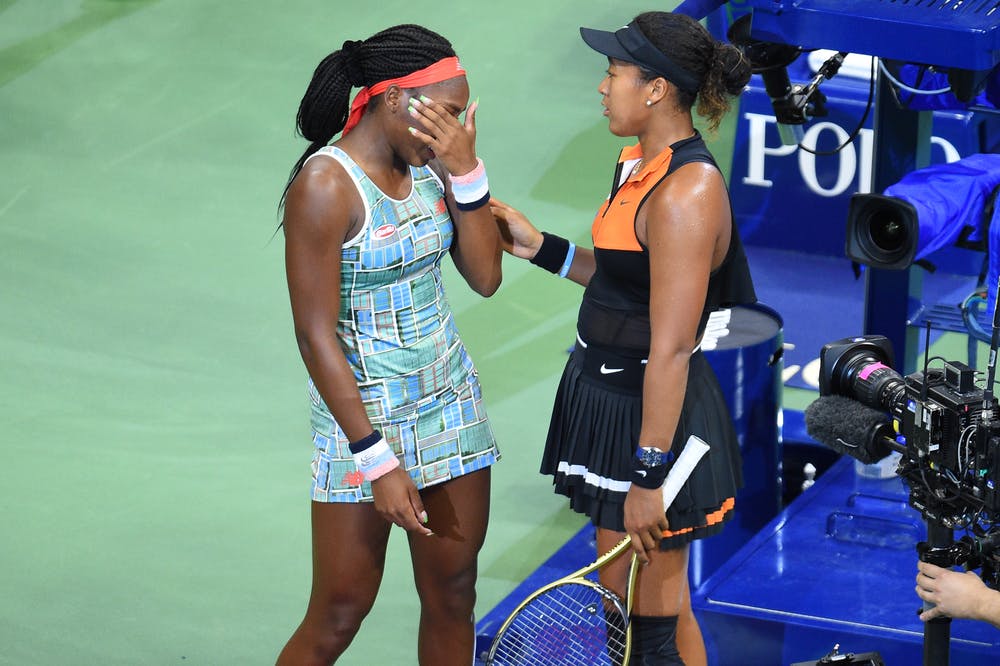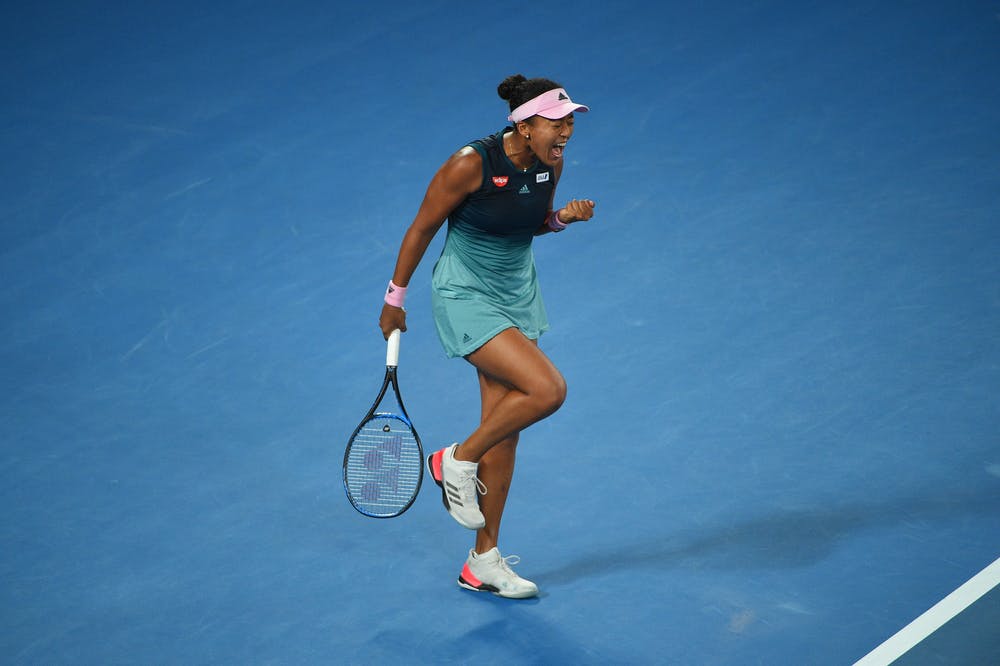Swat them away
With Kvitova serving at 3-5, Osaka got her hands on three opportunities to close out the match. Three championship points. Any one of them would give her a second consecutive Grand Slam title. But all three dissipated into thin air as Kvitova found her serve to swat them away and hold.
Serving for the championship, Osaka got broken and went on to surrender the second set. The majority of the crowd on Rod Laver Arena, along with the millions watching on TV across the globe, were probably thinking it was over for the then 21-year-old, who was seen crying on her way to a toilet break before the decider.
Their suspicions gathered steam when Kvitova won the first five points of the third set. But then Osaka did what she does best – she proved everyone wrong.
In a composed manner that is hard to fathom given the circumstances and what was at stake, she held serve, then broke Kvitova and went on to secure her second major crown, which came with a piece of history, as it made Osaka the first-ever Asian tennis player to become the world No.1.
 ROLAND-GARROS
18 May - 7 June 2026
ROLAND-GARROS
18 May - 7 June 2026


